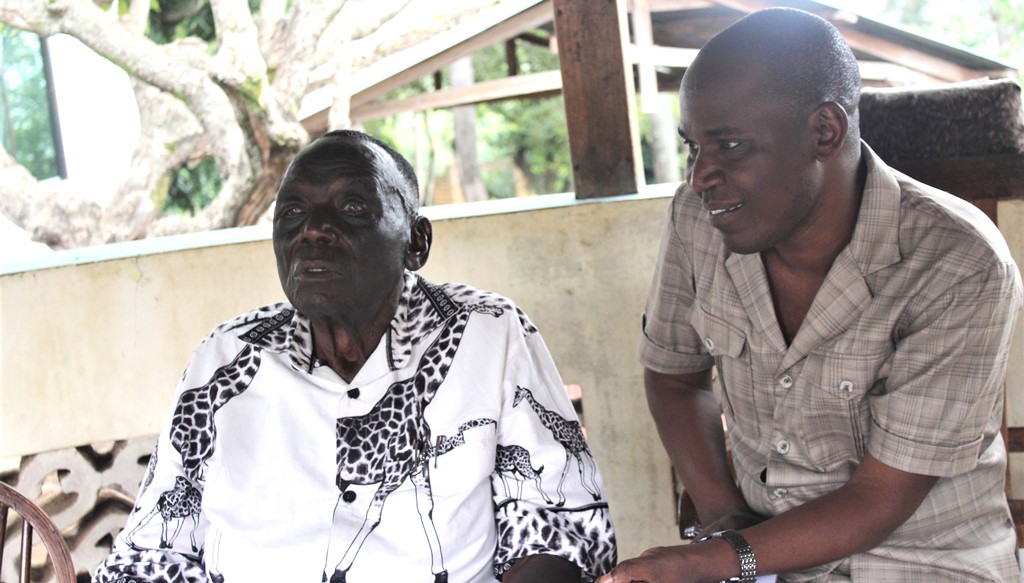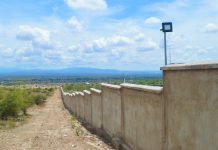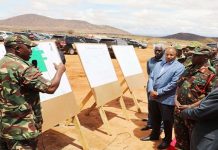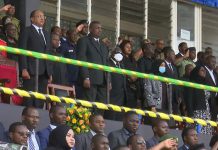WHEN one writes the history and performance of Tanzania People’s Defence Force (TPDF), the name of General David Musuguri must surface out prominently. The former army chief is turning 100 years today.
The highly decorated Chief of Defence Forces (CDF) granted the ‘Daily News’ an exclusive interview early this week at his home village of Butiama in Mara region, where he shared some insights about life in the army. In his remarks, General Musuguri expressed his gratitude to the government and the entire Tanzanian community for taking care of him.
“I thank Tanzanians so much for taking care of me until this time when I am turning 100 years. I did not expect to reach this age, but good care has made it possible,” he said in a low but audible tone. He was appointed to the highest post in the military in February 1981 by Tanzania’s first President and the founding father of the nation, the late Mwalimu Julius Nyerere.
General Musuguri’s 100th birthday celebration will be held at Butiama today. He retired from the military 32 years ago. Family sources told this paper that the 100th birthday function will include a thanks giving mass that will be presided over by Butiama Roman Catholic Church parish priest at around 10 am.
The family further tipped our reporter that several government officials and political leaders have been invited to attend the event. Speaking in a relaxed manner, General Musuguri urged Tanzanians to maintain the prevailing peace and tranquility across the country.
“Let us continue to maintain peace of the country, and every Tanzanian should be educated on the importance of maintaining it,” he stressed. The retired soldier who served as CDF during the first and second phase governments said he has always been happy with the performance of the government of Tanzania.
“I am happy with the government since we attained independence, and I am still very excited with the government,” the former CDF noted. He advised young men and women to respect the government and work hard in order to turn Tanzania into one of the most developed countries on earth.
General Musuguri was born on January 04 1920 at Butiama, a place where he seems to have fallen in love with after retiring. General Musuguri said he has been staying at his village in Butiama for the past 32 years after his retirement.
When asked what kind of food he eats, General Musuguri retorted, “Anything that a human being can eat.” But he quickly pointed out that traditional food such as ugali (mixture of millet and cassava) and sweet potatoes are some of his favorite. For breakfast, the retired general says he takes tea with bread or sweet potatoes.
On his hobbies, the former CDF says he enjoys reading newspapers as well as watching news bulletin “I like to read a variety of newspapers, including your paper. You see, the Daily News is a paper that is so informative, but apart from that, I also watch and listen to news,” he explained.
With a sad face, the former war hero recalls the challenges of being involved in a war, saying it was the toughest time of his career as a military man. “I fought several wars, including the Second World War and the invasion of Uganda,” he recalls.
“I am proud that I participated in chasing Idd Amin Dada to Saudi Arabia where he sought for asylum. But I can assure you, there is no war that is good. War means killing,” he said with a faraway look in his eyes, saying that in the military, you can only be happy when there is no war.
“If you win the war then you are happy, but you are happier if there is no war,” he says. The former CDF was appointed commander of the TPDFs 20th Division and tasked with overseeing the advance into Uganda. Recounting how two Ugandan towns were captured In strategizing for total control of Uganda, two major towns in southern Uganda- Masaka and Mbarara, became the major targets.
The former was the third largest inhabited place in the country and the site of the southern headquarters for the Ugandan army. The Tanzanian forces decided to capture these vital towns as revenge after the devastation brought by Ugandan troops in the western parts of the country and in order to incite a rebellion.
The then toppled Ugandan President, Milton Obote, assured Nyerere that if the locals were taken, a mass uprising would take place against Amin’s regime, deposing it in a few weeks and allowing the Tanzanians to exit the war.
Obote was also certain (and Nyerere was partly convinced) that the Ugandan army would disintegrate if Masaka was captured.
The Tanzanians began careful planning for an offensive on the two towns. It was originally hoped that the Ugandan rebels could spearhead the attack, but there were only about 1,000 of them, so the Tanzanians had to lead the operation.
Between the TPDF’s positions and Masaka was a series of locations occupied by Ugandan troops that needed to be cleared out, including an airstrip and various artillery batteries. The 201st, 207th and 208th Brigades were ordered to clear the way.
They steadily advanced, killing dozens of Ugandan soldiers, destroying some of their war material, and managed to seize the airstrip on 13th February. On the eve of 24 February, the TPDF initiated a massive nighttime bombardment of Masaka, focusing their fire power on the Suicide Battalion’s barracks.
They fired nearly 1,000 shells. The town centre was also hit with Katyusha rockets, popularly known as “Saba Saba” rockets. The Ugandan troops from the barracks were not in their defensive positions by the time the barrage started, and withdrew to Boma hill.
Feeling that the high position offered them sufficient cover for an extension of their deployment, some of the soldiers relocated to a pineapple field in the Masaka valley and entrenched themselves. By then, serious divisions had emerged among the rank and file of the Ugandan army and the officers defending the town.
Many soldiers felt that the entire war had been instigated by the Suicide Battalion (which had led the 1978 incursion into Kagera) and thus believed that Masaka should be solely defended by that unit. Partly as a result of the internal tensions, the First Infantry Brigade and the Chui Battalion promptly withdrew to Lukaya.
At Musuguri’s command, the TPDF’s 201st and 208th Brigades attacked at dawn. Their assault focused on Kitovu (which had been left undefended by the Chui Battalion’s desertion), Nyendo, and the pineapple field, before concentrating on Masaka proper.
The 207th Brigade under Brigadier John Walden, equipped with a squadron of tanks, attacked from Mutukula. Outnumbered, the Suicide Battalion was forced to withdraw. The retreat, according to some of the officers, devolved into what they termed as a stampede after the Ugandan army lost control of the situation.
New York Times reporter, John Darnton, later argued that the Suicide Battalion had de facto “rebelled” during the battle. The battalion eventually took up its position on Villa Maria hill, where they watched in disbelief as the Tanzanian army entered Masaka.
The TPDF seized the town using minimal force, after they found most of the Ugandan soldiers and civilians had left. The few civilians that remained welcomed the Tanzanians, terming them as the liberators.







